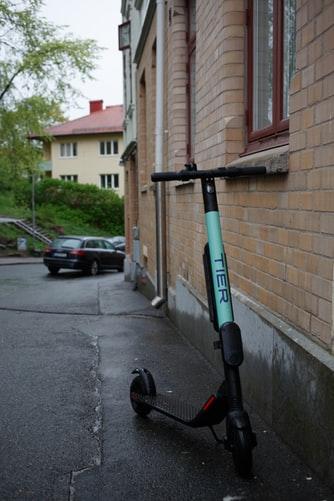E-Scooters Might Not Be so Good for the Environment
- July 13 2019
- 3 min read
E-Scooters Might Not Be so Good for the Environment

E-scooters, the E standing for "electric," promoted as zero-carbon, urban transport, are flooding city streets worldwide. But, just how green this mode of transportation is is still an unanswered question.
The companies distributing these vehicles, from multinational operations to local start-ups, insist that these ever present two-wheelers are a gain for the environment and will help curb global warming.
One American firm, one of the global leaders in e-scooters, boasts on their website,
"Bird was founded to create a cleaner and more hospitable world that prioritizes people over cars. Scooters cut the use of vehicles and reduce the volume of traffic on the road. They also help reduce pollution and improve air quality."
American e-scooter firm Bird, via their website
Shared scooters that don't require docking ports can be driven door-to-door. You'll avoid searching for a parking space. Plus, they have zero-emission motors.
On paper, they look great! They have the potential to radically reduce urban car traffic. In France, for example, 70 percent of trips between home and work are three miles or less (five km), according to the French National Institute for Statistics and Economic Research.
"Micromobility could theoretically encompass all passenger trips of less than five miles (eight km), which account for as much as 50 to 60 percent of today's total passenger miles traveled in China, the European Union, and the United States."
Report from consulting firm McKinsey
The National Association of City Transportation Officials said that in the US, riders made almost 40 million trips on shared scooters last year.
Lime, a major player, financed by Uber and Google's parent company, Alphabet, found that about one in every three rides in only 26 cities around the world replaces one car trip.
"From this shift, we estimate that our riders have avoided 15 million miles (about 24 million km) of car travel and prevented 6,220 metric tons of carbon emissions over a two year period."
E-Scooter company Lime
But does this vehicle live up to the hype?
With regards to Lime's claims, research group 6t conducted a survey of 4,500 commuters in Paris, Lyons, and Marseille, France. It revealed that only 19 percent of riders used these scooters to go to work or school. More than 40 percent of usage was done by out-of-town visitors.
Going to work or school using an e-scooter? Take your things in a backpack made from sustainable materials.
Without access to e-scooters, 44 percent of respondents said they would have walked, 12 percent said they would have biked, and 30 percent would have used public transportation.
Cars only squeezed into the picture.
Are you one of the people who still drives? Keep your keys on a lanyard made from eco-friendly materials.
"But this doesn't mean that we should get rid of e-scooters
Head of Mobility at The Ademe Jeremie Almosni—absolutely not! The fact that half the usage is recreational is striking, but at least this favors a more mixed use of transport. It's definitely a way to get people out-and-about more, and perhaps a way of encouraging them to give up cars."
The Ademe is the French government agency for energy efficiency.
"As of today, it is impossible to say whether e-scooters are good or bad for the environment because we lack long-term statistics on life cycles."
Ademe Transportation Engineer Denis Benita
One study, from Louisville, Kentucky, puts the life cycle at only 28 days, while another said it was closer to three months.
Companies are still trying to make these vehicles more powerful, making them more profitable, across what is already a multi-billion dollar industry.
Make your business more profitable by purchasing marketing materials from Custom Earth Promos.
"An electric scooter lasts twice as long today as when we first came to France in June 2018."
Lime France spokesman
The company also recycles their hardware. "...every piece, down to the last screw, is reused," claimed the spokesman.
The learning curve has been just as sharp for Bird, according to the head of Bird France, Kenneth Schlenker.
"We've only been operating in cities for a year-and-a-half. We've learned a lot in that time."
Head of Bird France Kenneth Schlenker
Schlenker noted that the company plans to extend their life span by two years by doing things such as consolidating parts from engines.
Batteries happen to be another issue.
The market for e-scooters and motorcycles, which, according to Markets & Research, could be worth $14 billion by 2025, has mostly shifted towards lithium-ion batteries. These are lighter and last longer than other kinds.
But they aren't without their problems. Lithium-ion batteries post environmental risks related to both sourcing and waste. Lime is trying to help curb this problem. They have recently partnered with a French company that claims it can recycle 70 percent of spent batteries.
Gain access to Orders, Tracking, Custom Options and Much More!